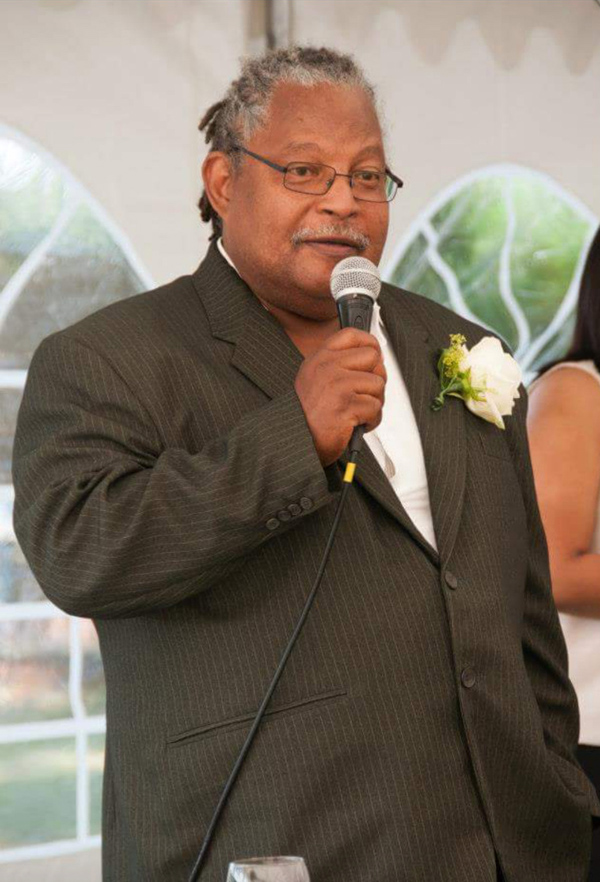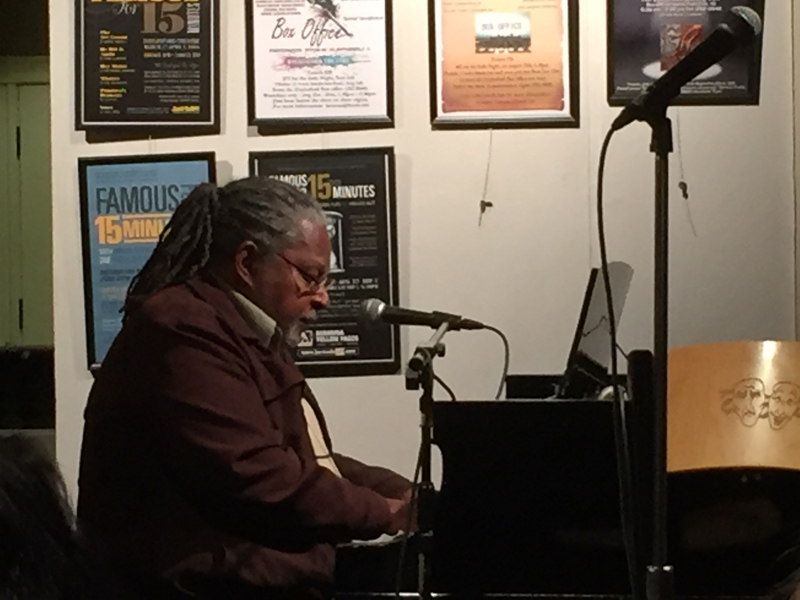Column: The Life & Legacy Of Ron Lightbourne
[Written by Glenn Fubler]
Ronald Lightbourne’s unique childhood had an impact on his life of 71 years. His Bermudian parents were missionaries with the Salvation Army in the Caribbean and Central American region. Ron was born in Guyana [British Guyana], as the second of three siblings.
The circumstances meant that the family moved often through this part of the Atlantic Basin – living in four or five places by the time he was 10-years-old. This is perhaps one of the reasons that Ron saw himself as a global citizen.
At the age of 10, Ron’s family was stationed in Belize [British Honduras] and by that time his talent for music was flourishing, as he played lead cornet in the Salvation Army Junior Band which his father had started. This role meant that he often played with some older band members on street-corners as the Salvation Army conducted their community ministry. These experiences would have honed Ron’s musical skills and fueled a life-long passion that was open to the various genres of the ‘universal language’.
Ron completed his ‘O’ Levels while in Jamaica, before the family moved back to Bermuda. It was at Berkeley that he worked towards his ‘A’ Levels, at a time that he was being drawn into other arts; literature and its counterpart writing. It was while at the Berkeley that Ron leveraged his roots of globalism and became involved in reaching outside of boxes, linking with students across the barriers of race in a writing collaboration project with students from Warwick Academy, BHS and Saltus.
His ‘A’ Level success opened up the opportunity to attend college, but his budget constraints meant that he took up a scholarship from Government for teacher training. This option placed his particular passion for the arts as secondary.
During Ron’s three years in school in the U.K. he became involved in some protests against apartheid, an early experience that he found transformative. Another experience that shaped his life was meeting Hilary – his heart-throb who became his first wife soon after graduation. The couple settled in Bermuda as two new teachers – Ron teaching music at his alma mater, Berkeley.
Out of this marriage came his son – Jonathan – and daughter – Jessica. His children were always the focus of his attention. Although this marriage ended in divorce, the two parents worked together to ensure a balanced relationship for the children.
I joined Ron as a biology teacher at Berkeley in 1974, beginning a life-long relationship. I returned abroad for further studies in 1977 and lost some contact when Ron moved off to teach elsewhere. It wasn’t until 1982 that our connection was renewed, when the Bermuda Anti-Apartheid Movement emerged.
By that time Ron was deeply involved with the Bermuda Physical Handicapped Association [B.P.H.A.], led by his close-friend, Margaret Carter. They became deeply involved in the anti-apartheid movement, arguably due to Ron’s experience in the U.K. Committee meetings were held at the BPHA office.
In fact, the BPHA can be credited with reinvigorating the local anti-apartheid movement when they organized a group of wheelchair using members for a ‘Wheel-A- thon’ from St. George to Hamilton for a flagging South Africa Fund-Raising Campaign. When those wheelchairs completed that journey on one of the rainiest days in 1983, the movement was born again.
During the 80s, Ron was involved in the entertainment industry as a pianist in Gene Steede’s band, and his links with that fraternity were also a vital piece in the overall campaign. As a result, a number of entertainers volunteered their services in support for the effort.
In the later 80s, we put together a campaign to have residents driving with their headlights in support of South Africa and Ron and his good friend Gene were able to facilitate the production of a ”Let Your Light Shine” radio ad which mobilized the support of a majority of the driving public.
Two situations which were especially memorable for Ron included his travel to represent the island at a UNESCO sponsored Conference on Apartheid in Paris. He often recalled the time that he ran into Harry Belafonte on the elevator during that occasion.
Another favourite was the visit of Archbishop Trevor Huddleston to Bermuda in the mid-80s. Huddleston had been a priest in South Africa and had been a key mentor of Desmond Tutu, before being extradited by the apartheid regime.
Back in the U.K., Huddleston eventually became an Archbishop and founded the British Anti-Apartheid Movement, through which we facilitated his visit to Bermuda. Huddleston preached at the Cathedral on that Sunday and Ron drove he and Margaret around the island on that Monday, all sharing poignant life-stories, before the Archbishop spoke at City Hall that evening. That drive – showing off his island, sharing stories – was one Ron treasured over the decades, since.
During his school-teaching career, Ron worked at a variety of schools. His favourite was arguably at Devonshire Academy, under the leadership of the school’s arts department head Gloria McCulley. She was a dynamic mentor from the U.S. whose daughter happened to be the partner of Stevie Wonder.
Consequently Ron recruited Gloria’s help in Stevie doing a ‘live phone-in’ at one of our events at City Hall. McCulley also directed the Catholic Mass Choir around that time – which Ron joined – and the ensemble subsequently performed in Italy during a summer trip. Another special memory of Ron’s.
Ron was a life-long learner and during the summers of the late 90s he often travelled to a remote town in Mexico which was a mecca for the arts. There he honed his writing skills and became fluent in Spanish. When more than a decade ago, he married Grisell – a native of Cuba who is a math teacher at Bermuda College – his summer destination changed accordingly. It was that passion for learning that was a constant with Ron, a true renaissance man. That passion was only out-shone by his passion for his two children and four grandchildren.



